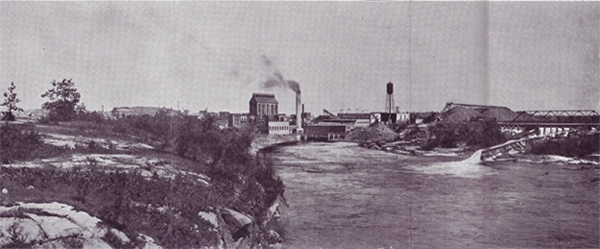Sturgeon Falls Mill focus of lecture

Nipissing University welcomes Dr. Steven High to campus for a special lecture, titled The Life and Death of the Sturgeon Falls Mill: an Oral History, on Monday, April 3, at 7 p.m. in room B200.The lecture, the annual Anne Clendinning Memorial Lecture, is presented by Nipissing’s History department. Dr. High is the author of the prize-winning book Industrial Sunset: the Making of North America’s Rust Belt and (with photographer David Lewis) Corporate Wasteland: The Landscape and Memory of Deindustrialization, as well as many other books and articles. He is a professor of History at Concordia University and a founding member of the Centre for Oral History and Digital Storytelling. He is an interdisciplinary oral and public historian with a strong interest in transnational approaches to working-class studies, forced migration, community-engaged research, oral history methodology and ethics, and living archives. His major areas of expertise are deindustrialization and on the post-industrial transformation of North American cities; oral accounts of mass violence; and race and empire in Newfoundland, Bermuda, and the British Caribbean during the Second World War. Dr. High is also a former member of the department of History at Nipissing University. The faculty of the department of History at Nipissing established the Anne Clendinning Memorial Lecture in 2015 to celebrate and honour the memory of Anne Clendinning, an outstanding colleague, teacher and scholar of Victorian Britain. Here is an abstract of Dr. High’s lecture: With Brexit and the election of Donald Trump, the political aftershocks of deindustrialization are of pressing concern to us all. Working-class voters, mainly white, in “rust belt” areas proved key to these results raising questions about the relationship between class and racial identity in declining areas. This year’s Clendinning Lecture explores the extent to which the culture of industrialism in Northern Ontario was a product of wider processes of Euro-Canadian colonization and the racial exclusion of Indigenous peoples. Historically, mine and mill towns in Ontario’s Northland were white settlements, as employers hired few Indigenous people except in seasonal woods operations or as occasional labourers. Language and faith also mattered, as there was a sharp class divide between Anglo-Protestant managers and Franco-Ontarian (and Catholic) workers. At its peak in the early 1960s, the Sturgeon Falls mill employed six hundred workers, but one production line after another was terminated until the mill closed altogether in December 2002. Oral history interviewing began while efforts to reopen the mill persisted, and continued as these efforts faded and the mill was demolished. This rapidly changing context profoundly shaped the conversations with mill workers and managers that we recorded, and the emotions unleashed were often incredibly raw. Deindustrialization has marked a crucial rupture in the lives of tens of millions of working-class families around the world.
